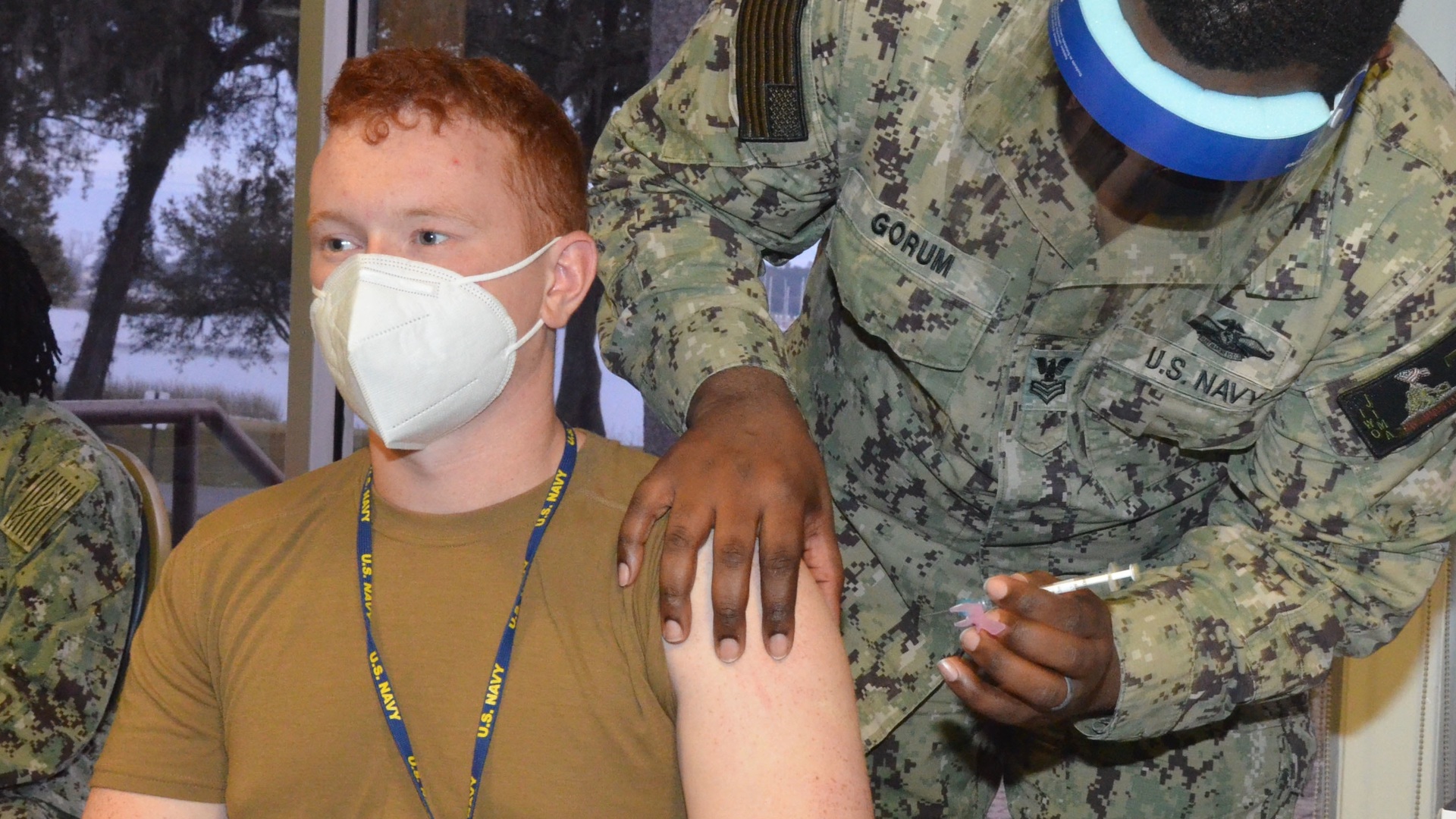

While countless Americans are anxiously awaiting for their chance to get vaccinated against the novel coronavirus (COVID-19), an unspecified number of service members and other Defense Department personnel have refused to get inoculated, defense officials said.
In December, defense officials announced that the COVID-19 vaccination program for roughly 11 million personnel would be voluntary because the vaccine had only been approved on an emergency use basis and that service members and other personnel would not face any penalties if they decided not to get inoculated.
Only if the U.S. Food and Drug Administration fully licensed the COVID-19 vaccine would the Defense Department consider making it mandatory, then-Pentagon spokesman Jonathan Hoffman said at the time.
So far, the Defense Department has inoculated about 336,000 people, of which about 46,000 have received two doses of a COVID-19 vaccine, according to the U.S. Centers for Disease Control and Prevention’s website. But not all department personnel who have been eligible to get vaccinated have done so, said Air Force Brig. Gen. Paul Friedrichs, Joint Staff Surgeon.
“We’re not compelling people to take a vaccine,” Friedrichs said. “This is truly something that they have to volunteer for. And we’ve been very careful to adhere to – not just the letter – but the intent of the guidance that’s been put on that under the emergency use authorization.”
Friedrichs was unable to say how many service members and other personnel have declined to get vaccinated.
“The refusal rate is a statistic that I think we’re not going to be able to give you because it’s a voluntary vaccine,” Friedrichs said when asked how many people at the Pentagon have refused to be vaccinated. “Are we seeing people who are declining to get it? Yes.”
Those personnel have cited a variety of reasons for why they did not want to get vaccinated, including pregnant women who wanted to consult with their doctor before being inoculated, Friedrichs said.
Typically, older personnel have been more willing to be vaccinated than younger people, said Friedrichs, who added that defense officials hope to ease the concerns of people who are hesitant to get inoculated by letting them know how safe the vaccine is.
Service members who choose not to be vaccinated are still able to deploy and perform other essential missions, he said.
“There are people in, I think, every walk of life across our country who are making this choice when they’re offered the opportunity to get vaccinated,” Friedrichs told reporters. “Certainly within the Department of Defense, we try very hard to make it clear this is a voluntary vaccine. And, while we certainly encourage people — and I ask for your help with that, to reinforce the safety and the efficacy of this — it is ultimately a voluntary vaccine.”
Featured image: A sailor aboard the USS Iwo Jima gets a COVID vaccine. (U.S. Navy/Deidre Smith)
